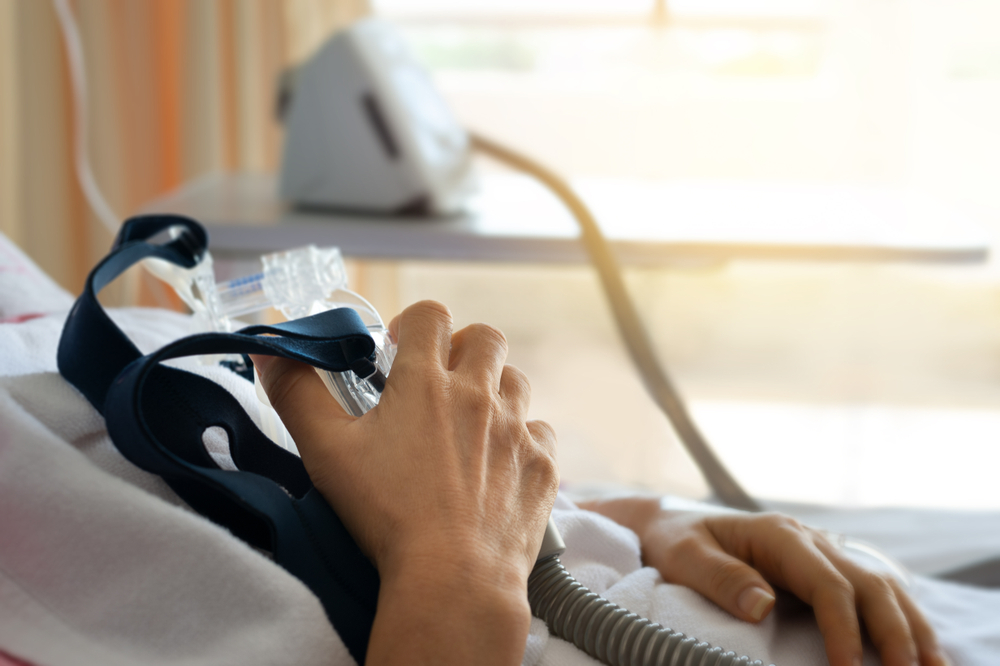Sleep apnea is a condition that causes people to experience irregular breathing when they sleep, leading many to wake up gasping for breath throughout the night. The possible complications of sleep apnea on the estimated 25 million Americans who suffer from it can be serious: fatigue, high blood pressure, heart problems, Type 2 diabetes, and even fatal health conditions can occur or worsen. Luckily, continuous positive airway pressure (CPAP) devices have improved the lives of those who suffer from this disruptive, and sometimes life-threatening, condition.
But a recent recall of Philips CPAP machines have endangered and harmed some of its millions of users. The recall came after complaints of ingesting and inhaling toxic compounds that were released due to the breakdown of the noise-abating polyurethane (PE-PUR) foam used in the affected devices.
In the months following the recall, product liability and class action lawsuits have been filed across the country, and many have joined CPAP machine lawsuit investigations. If you or a loved one used a defective CPAP machine for at least six months and developed a related illness or diagnosis, you may be entitled to compensation.
With large scale defective product cases like these, there’s likely to be claims deadlines in the future. An experienced CPAP recall lawyer can help navigate the legal process and ensure the right documentation and deadline submissions are met. Here’s what is currently happening with lawsuits against Philips Respironics.
Product Liability and Class Action Lawsuits Against Philips
The illnesses and injuries that could occur from using a recalled CPAP, BiPAP or mechanical ventilator by Philips Respironics range from minor to life-threatening. They include skin irritation, respiratory inflammation, cancer, pulmonary fibrosis, chemical poisoning, asthma, and liver and kidney damage.
Over 1,000 complaints of the polyurethane foam breaking down and entering the device’s airway have been made. By the end of September 2021, there were 93 proposed class action lawsuits filed against Philips Respironics.
Multiple damages and injunctive relief have been cited in the lawsuits, including negligence, products liability, consumer-law violations, breach of warranties and fraud. Many claims are related to users being unable to use the recalled products safely, but there are other options to seek compensation for the physical harm they caused.
In defective product injury claims, those harmed or the family of someone fatally injured by the product could have legal standing to hold the manufacturer, retailer, distributor and/or wholesaler liable. Defective designs and failure in performance and quality related to warranties are often involved in a product injury claim. Loss of wages is another possible component of CPAP recall claims.
In the case of the Philips CPAP recall, users who suffered specific symptoms or developed illnesses from ingesting or inhaling toxins from the PE-PUR foam could be financially compensated by proving negligence and/or recklessness.
On September 30, the Judicial Panel on Multidistrict Litigation (JPML) heard motions to decide whether 32 of the lawsuits would be consolidated in multidistrict litigation (MDL) in Pennsylvania. If the MDL is set, the pretrial proceedings of all cases would be consolidated to one court. However, each case involving those injured or ill from using a recalled Philips CPAP machine or other respiratory devices would still be tried separately.
An investigation by the FDA could impact lawsuits against Philips Respironics. Details have emerged since the company recalled millions of its CPAP devices in June 2021 – details that allege they were aware of the foam’s potential degradation. The investigation will reveal whether Philips failed to warn about the risks and if there was negligence. In addition, allegations that they held off on the voluntary recall and related dangers to time it with the release of the next generation of devices have been cited in lawsuits.
Should I Continue Using My Recalled CPAP Machine?
There are clear dangers associated with the CPAP, BiPAP and ventilators that Philips Respironics has recalled. Replacement of defective CPAP components has begun, but it will take about 12 months to fix or replace all of them with millions sold. This has put those with recalled machines in difficult positions because insurance companies will not cover the cost of a new one unless their CPAP machine is five or more years old.
Armed with the knowledge of the dangerous health risks from recalled CPAP machines and the conditions that require them, millions of doctors and patients in the U.S. are faced with a tough choice: Do you continue using your Philips CPAP machine, even though it could take a year? Is the risk of using it greater than the risk of not? These are questions your healthcare provider can answer.
Contact your doctor immediately for guidance if you’re using a recalled Philips Respironics CPAP or other respiratory machines. The seriousness of your sleep apnea and other health conditions will impact what’s best for you. Your healthcare provider may decide the risk of particles and chemicals in recalled devices may be lesser than the risk of not using a CPAP machine.
What Should I Do If I Was Injured by a Philips Respiratory Machine?
The polyurethane foam in the recalled Philips CPAP machines contains volatile organic compounds that are toxic and carcinogenic. Due to the defect that causes the foam to degrade and particles released into the air pathway of affected devices, they can cause a range of health problems and illnesses.
Anyone injured or who developed an illness after using a recalled Philips CPAP machine for at least six months should speak to a lawyer experienced in product recalls and injuries. There are options to join class action lawsuits and file a personal injury claim under product liability laws. Have your case reviewed to discuss your legal rights.













